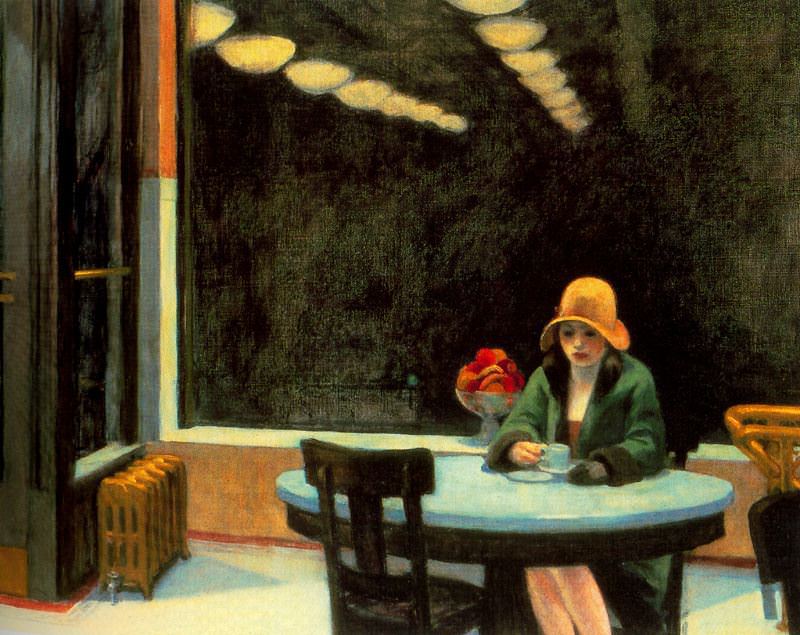Censors in the past banned books because they were considered too demoralizing. Realist depiction of ordinary life and its hardships was distasteful in their eyes. Ironically, that was not the main charge against Of Mice and Men, though it was an unmissable characteristic. The final act of mercy killing, along with a minor racial theme and language, laid a shadow on everything else including, sadly, how much of a literary masterpiece it is.
Each of the pitiable characters clings to a dream, which had been either crushed or, judging by the book’s mood, will hit a dead end, quite literally. That’s what makes the book emotionally arduous to read: we can’t help but be reminded of our own unrealized dreams.
Lennie, the lovable and mentally deficient friend of George, brings the conversation to a halt, indicating he won’t cooperate unless he’s verbally reassured of the duo’s plan. George has to reiterate as he always did:
“O.K. Someday- we’re gonna get the jack together and we’re gonna have a little house and a couple of acres an’ a cow and some pigs and-”
“An’ live off the fatta the lan’, [a]n’ have rabbits. Go on, George! Tell about what we’re gonna have in the garden and about the rabbits in the cages and about the rain in the winter and the stove, and how thick the cream is on the milk like you can hardly cut it. Tell about that, George.”
The old handyman of the ranch, Candy, whose future seems dim as he’s getting weaker with age overhears George and Lennie and immediately pictures himself on their “promised land”:
“S’pose I went in with you guys. Tha’s three hunderd an’ fifty bucks I’d put in. I ain’t much good, but I could cook and tend the chickens and hoe the garden some. How’d that be?”
One man on the farm, Crooks, was far too smart for this wishful thinking. He is the only black man around and whose name is a reference to a disability in his back. He’s often mistreated, but he’s intelligent and well-read. When George tells him of their plan, he responds with disdain:
“You’re nuts. I seen hunderds of men come by on the road an’ on the ranches, with their bindles on their back an’ that same damn thing in their heads. Hundreds of them. They come, an’ they quit an’ go on; an’ every damn one of ’em’s got a little piece of land in his head. An’ never a God damn one of ’em ever gets it. Just like heaven.”
However, even the intellectually superior man of the story can’t help but indulge in a moment of self-deception and asks desperately minutes later:
If you… guys would want a hand to work for nothing- just his keep, why I’d come an’ lend a hand.
While the Utopian plans of Lennie, George, Candy and Crooks lie in the future, someone else is haunted by a dream from the past: the wife of Curley, the owner of the ranch. It must be simultaneously satisfying and distressing for her to hear herself time and again explain how life could have taken a different path. She finds satisfaction in trying to persuade others that she’s more than just a woman living on a ranch but by the end of her anecdote she realizes she’s just that:
“‘Nother time I met a guy, an’ he was in pitchers. Went out to the Riverside Dance Palace with him. He says he was gonna put me in the movies. Says I was a natural. Soon’s he got back to Hollywood he was gonna write to me about it. I never got that letter. I always thought my ol’ lady stole it.”
…
“Coulda been in the movies, an’ had nice clothes- all them nice clothes like they wear. An’ I coulda sat in them big hotels, an’ had pitchers took of me.”
It’s likely that the ill-reputed woman didn’t share all details from her young interaction. He might have been sincere and she did possess the “cinematic” looks. Also, he might have sent a letter which her mother kept away from her. However, anyone who has ever been a teenager could see through the cheap compliments like she’s “a natural.” Such a sleazy pickup line was probably meant to charm her into bed but turned over the years into an obsessive what-if scenario.
Curley’s wife presents the saddest example of a dreamer. In fact, she’s not dreaming at all since none of it is attainable. She’s attached to a mere fantasy. To be fair, it was a truly harsh place for women at that time, but a life of self-victimization, putting the blame on her mother, husband and society only feeds into her bitterness.
Western media, from newspapers to Hollywood films, is replete with messages and positive examples aimed at inspiring people to pursue their dreams. All human progress can be credited to that unique mental ability of imagining better alternatives. In the absence of dreams, life becomes purposeless and despondent. In fact, we can’t help but hope for a better tomorrow and in that process, we constantly struggle to distinguish between idealistic delusions and borderline crazy dreams with potential. Such delusions and fantasies are sometimes so alluring that even those who should know better, like Crooks, still succumb to them.
Nevertheless, the ugly truth is that despite our persistence and best efforts, there comes a point in life when we realize that some of our dreams will never materialize. Some of us will never find their soulmate. Some will never have children. Some will never become wealthy. Some won’t have the job, house or car of their dreams. There will always be unaccomplished goals and unfinished business. You might not visit every country you hope to visit, or have every joyful experience there is to have.
The wrong reaction upon realizing this truth is to become nihilistic and stop dreaming. The great American educator and Civil Rights leader, Benjamin E. Mays, explains it clearly:
The tragedy of life doesn’t lie in not reaching your goal. The tragedy lies in having no goal to reach. It isn’t a calamity to die with dreams unfulfilled, but it is a calamity not to dream…It is not a disgrace not to reach the stars, but it is a disgrace to have no stars to reach for. Not failure, but low aim is sin.
Whether we reach that conclusion at an advanced age or, perhaps, much earlier, the best attitude is to develop a sense of pride and satisfaction in what we’ve already achieved. There’s no room for resentment when you reflect on how much pleasure you found in each attempt towards an unfulfilled dream. You might realize that you’ll never master Japanese language but you won’t cease to enjoy the learning process. You might conclude at 40 years old, that it’s unlikely you’ll become a widely recognized singer but you still continue to perform to appreciative small crowds. Follow the example of Lennie and George who dared to keep a dream despite the toughest challenges.
You might also like:

Why Voltaire mocked Canada as ‘a few acres of snow’?
He also called it the land of ‘barbarians, bears and beavers’
BOOK: CANDIDE

Loneliness is inevitable for everyone
The path to solitude starts with accepting loneliness
BOOK: OF MICE AND MEN




